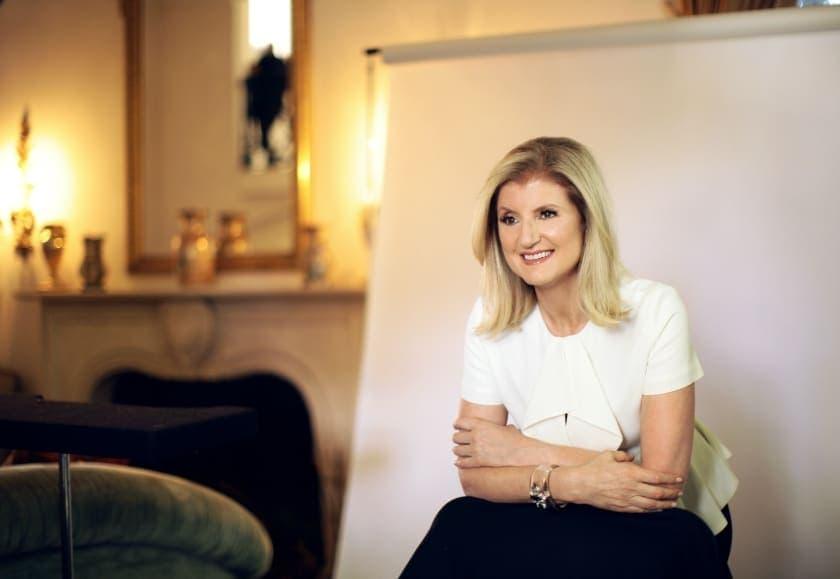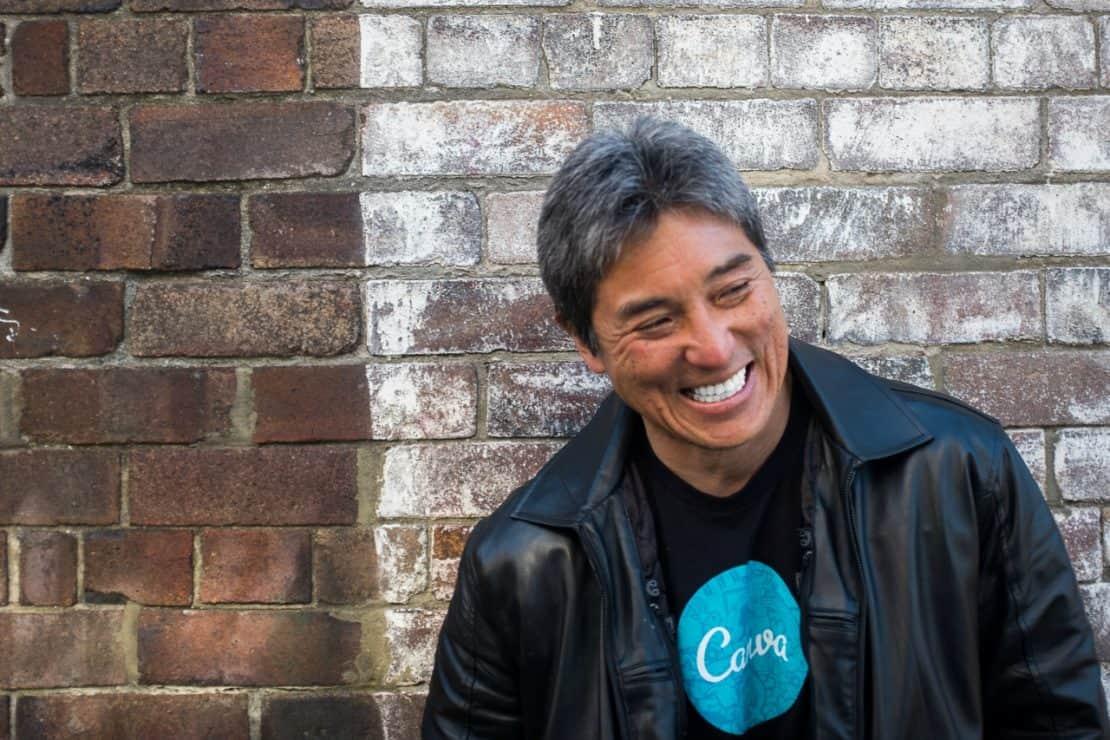21Sep2015
Simon Sinek explains why having empathy is the best strategic tool a modern leader has at their disposal.
In a world where everything is Hollywood and the wolves on Wall Street are seductively glamorous, it’s no wonder we fawn over the ego-driven, narcissistic leaders who take the world to the brink of catastrophe. Despite this fascination with bosses and their personality disorders, a new wave of leadership is emerging. Beating the drum for this more human and perceptive style is Simon Sinek.
The job of the leader is not about being in charge, it’s about taking care of those IN YOUR charge.
At the start of his book Leaders Eat Last, Sinek regales the story of Jonny Bravo, the pilot who demonstrates instinct and bravery in his role providing air support to his fellow marines. The importance of this message is that groups of individuals only succeed as a team when they are willing to sacrifice themselves for the greater good and, more importantly, for each other. If you are not willing to demonstrate a commitment to those you lead you cannot expect their loyalty in return.
When discussing issues about pay and the staggering high salaries that modern-day CEO’s can pull in, Sinek points out that nobody “really minds that they have crazy big salaries as long as we believe that they would sacrifice their interests to help us.” Sinek asserts that the reason we feel so bitter about those who plunged the world into recession is not because they were earning more money than the rest of us, but because they acted like cowboys whilst in positions of supreme responsibility.
On the flipside, someone like Dan Price, the founder and CEO of Gravity Payments, is a perfect demonstration of how Sinek’s method of leadership can be a strategic decision and not just a preferred ‘style’. By taking a $930,000 pay cut, equalizing salaries and showing empathy and sacrifice for those working for him, Price and Gravity Payments have launched into the global media spotlight. Sinek is careful to remind us, though, that we have to maintain this sort of behavior, stating: “[It’s] all fine equalizeise pay but if he then lays everyone off at the end of the year, that doesn’t work either.” Sceptics in the media and jealous competitors will be quick to point out any hypocrisy, so leaders looking to follow suit, being nice is not something you can fake for long!
Weaknesses? I don’t have any weaknesses!
We are told to be aware of our weaknesses. We need to know our weaknesses so we can improve, but instinctively we regard our weaknesses as bad. Who in this world aspires to be insecure or vulnerable? As such, it is no surprise that our ideal of leadership leaves little room for weakness. If then those who get promoted to positions of leadership show little sign of the capacity or flexibility needed to help others overcome their difficulties, should we really be surprised?
As Sinek points out, the qualities required for this style of leadership are compassion and empathy. He strongly believes that great leaders and great companies will have these values at the heart of their organization.
“When somebody is having performance issues at work we don’t threaten them that if they don’t pick up their numbers we can’t guarantee them a job, but rather if they are having performance issues we come to them and say, ‘Are you OK? Your numbers are down again this quarter, are you OK?’”
Delving deeper, Sinek explains that what needs to be created is what he calls ‘The Circle of Safety’. Practically, this is where a “leader creates an environment where someone [can] walk into [their] office and say: I’m having a hard time, can I talk to you?”
“In most organizations we don’t want to reveal any of the struggles we’re having for fear that will put us at risk. To be able to turn someone next to you and say, “I don’t know what I am doing?” and feel no fear of repercussions when you ask for help, is the sign of a well-led organization.”
Are you a leader or are you a manager?
Do you consider yourself a ‘Manager’ or a ‘Leader’? People often exert qualities from both categories, but they can be viewed as very different disciplines. How we approach (or ignore) this distinction is a key aspect of Sinek’s observations. “One of the things that I think is so interesting in an organization is we don’t teach leadership,” he exclaims. “This is the reason we get managers and not leaders because we just leave people to their own devices. We teach them how to do their job but we don’t teach them how to lead.”
Leadership is a very different type of responsibility. It requires that those in authority really know what that authority means and what others expect of them. Followers and leaders are symbiotic. Followers need to understand what good leadership is and support that behavior, just as leaders need to empathize with the feelings and expectations of their followers. This is why everybody in an organization needs to learn to become a leader. As Sinek states:
“[With] effective leadership training throughout the organization, especially with people who are transitioning into positions of leadership, we are giving them the skill-set to deal with all of these feelings.”
How to reward?
Imagine if you will, you open your paycheck and you realize your wages have increased. It wasn’t something you were expecting and your boss hasn’t said anything to you. What would you do? Would you simply carry on as normal and not say anything? No, probably not. The reason you don’t carry on is the need to know why. You need to understand why you got a raise. What have you done right or better that means you receive more? You need to know that you deserve it. Now flip the scenario over so instead you haven’t received any money but your boss has come up to you, patted you on the back, sat you down and explained that you have worked really hard and they really appreciate what you’ve done. Notice any difference?
Money on its own means nothing without recognition – in fact, it means less than nothing because it makes us uncomfortable. On the other hand, for many people for a large amount of the time, genuine recognition from others is hugely gratifying. The reason that it is more gratifying than money is because we are human and money is an abstract concept that only becomes relevant once we use it to buy a big car and an expensive house to show the world how important we are. When the neighbors say, “wow, nice car”, then it becomes real. In the interview and in his book Sinek describes many ways that rewards and concepts such as ‘peer recognition’ are being used to breed a new type of company culture and communicate value throughout organizations. Peer recognition is “where the employees themselves volunteer to run a program to choose who they believe is the person that they most want to be like,” he says when describing the efforts being carried out at Barry-Wehmiller.
We have the concept of good leadership completely wrong
We tend to think of great leaders as being larger-than-life, charismatic individuals who appear in moments of crises. This is the image most of us have in the back of our minds, but for Sinek it is a complete load of trash! Sinek firmly believes that we have the ideal of leadership all wrong and that really good leaders show their qualities everyday. They create an environment and build an ethic that will deliver when times are good as well as bad. As he explains, “leadership is a rather boring process because it’s not about coming into a room and barking orders, it’s the mundane daily task of saying hello, asking somebody how they are, making conversation in the hallway. It’s the really boring slow stuff, just like forming a relationship.”
For great leaders, leadership happens every day and it’s that hard work and empathy in building a strong team that delivers when our backs are against the wall.
“It is only exciting when everything goes wrong and you feel people come together and it just goes brilliantly – that’s when it’s exciting. But those moments of excitement are not leadership, those are the results of leadership!”
Strategic empathy – a truly human approach
So here are the main points our interview with Simon Sinek revealed:
- Leaders need to be the first into battle – if you sacrifice others to save your own interests, don’t be surprised if all the good people leave
- Weakness is not a weakness – if you create a climate where people trust each other, can ask for help and be vulnerable, problems will be dealt with and cooperation will soar
- Value people not money – a company needs to make money to exist, but if you always look to fire people before accepting a fall in profits, money is the only value you are left with
- Make everyone a leader – responsibility will vary, but if everyone knows what it means to lead, everyone will increase their efforts in order to make it through the tough times
- Genuine appreciation is the best reward – knowing that we have the respect and appreciation from those around us will help us to love our jobs
- Great leadership is really dull – successful leaders go under the radar because they are always leading, not waiting for disaster so they can be a hero
You see being nice and showing compassion has nothing to do with wearing a flower in your hair or putting on yoga classes during employee lunch breaks. The simple truth is that we are all human. We work with humans, we manage humans, we take orders from humans and also, and I know this might come as a shock but, our customers are humans too!
We are not machines
The business agenda of most people reading this will be something along the lines of ‘creating a product or service that in some way enhances human existence’. So let’s keep that in mind when we think of the strategic implications of the circle of trust. Ultimately it will get you to where you want to be and get you there faster!


 by:
by: 
 by:
by: